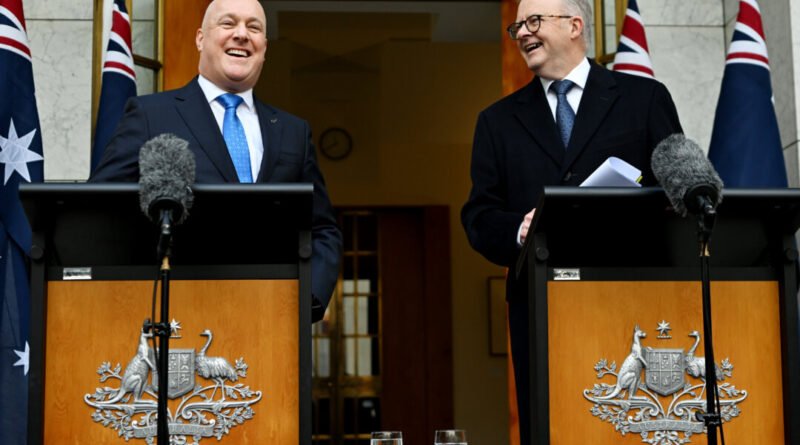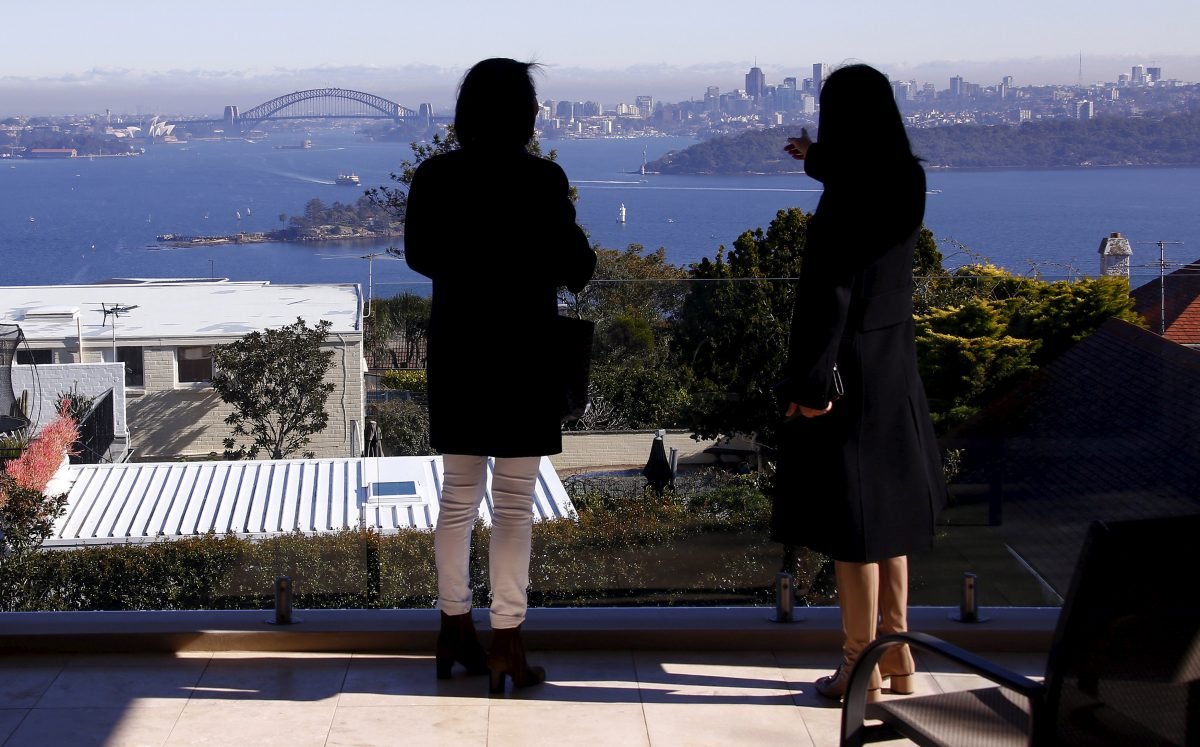Leaders in Australia and New Zealand to Treat Cyberattacks as Armed Aggression
When Christopher Luxon met Anthony Albanese in Canberra today, there was a lot of ‘reinforcing’ and ‘reaffirming’ taking place, along with a clear warning to aggressors.
Analysis
“If it ain’t broke, don’t fix it” is a useful maxim in geopolitics.
The longstanding and generally positive relationship between Australia and New Zealand means meetings between the two countries’ leaders rarely spur significant announcements, let alone surprises.
“Australia and New Zealand would consult together under the ANZUS Treaty to determine appropriate options to address the threat,” the statement said, in the clearest warning yet to foreign government actors that an attack with ones and zeroes may now be viewed as seriously as one carried out with bullets and bombs.
Albanese commented later that a cyber attack could have as significant an impact as traditional war, predicting that “an attack on the economy could bring down the operation of an entire society.”
The two leaders committed their countries to “work closely together to protect and promote our shared interests and values, and to deter threats to our national security,” specifying this as “including foreign interference, espionage, mis- and dis-information, economic coercion, and malicious cyber activity, which pose risks to trust in institutions and social cohesion.”
They reiterated previous announcements that both countries would consider future defence procurement in light of the need for interoperability.
“Our intention is to be able to say we are fully inter-operable with Australia’s forces—we want to be a force multiplier,” Luxon said later at a press conference.

There will be a renewed Joint Statement on Closer Defence Relations issued later this year, affirming Australia and New Zealand’s commitment to a coordinated agenda that deepens and expands their defence partnership over the coming years.
The prime ministers directly criticised the Chinese Communist Party (CCP), with Albanese and Luxon accusing it of “dangerous, destabilising and provocative behaviour in the South China Sea” while underscoring the importance of stability across the Taiwan Strait, saying any issues should be resolved “without the threat or use of force or coercion.”
Improving on Already Strong Economic Ties
On economics, there was little new.
Last year, the two Pacific nations marked the 40th anniversary of signing their Closer Economic Relations (CER) agreement.
This treaty was ahead of its time and predated the creation of the European Union or the World Trade Organisation.
It’s been steadily expanded ever since and then reinforced by the Single Economic Market (SEM), which aims to lower business costs, coordinate regulation, and make it easy for both businesses and people to operate across the Tasman.
With such a lasting and mostly practical commitment to free trade, there’s not much Albanese and Luxon could add other than acknowledging that rapid technological changes, as well as geo-economic competition, had “fundamentally reshaped the economic landscape.”
They committed to “modernising the SEM in response to these shifts—by expanding [it] to emerging sectors of the economy; taking active steps to ensure our economic resilience; and considering how to position the SEM within the economic evolution underway across the wider region.”
Officials from both countries will push to collaborate on setting standards and regulations to address the emergence of genetically modified organisms and AI.
Even space got a mention, with the prime ministers welcoming progress in strengthening science and innovation engagement under the Australia-New Zealand Science, Research and Innovation Cooperation Agreement.
The one new initiative was an agreement committing ministers and officials to coordinate closely on the Future Made in Australia agenda and the New Zealand government’s plan to rebuild its economy “to ensure that they would collectively support jobs, productivity, prosperity and economic resilience.”
On climate, New Zealand announced it would join Australia in the Climate Club to support trans-Tasman industry decarbonisation and strengthen the Indo-Pacific’s voice in that forum.
The two countries would also work to align technology, clean energy and sustainable finance policies to encourage investment.
Deportations Will Continue
Perhaps the most contentious issue between the two countries, Australia’s renewed deportation of New Zealanders who commit crimes there—even if they have little connection to their home country—wasn’t mentioned in the official communique and had to wait until the press conference afterwards.
A New Zealand journalist asked Albanese how he “felt about sending criminals to New Zealand.”
Noting the “provocative tone” of the question, the prime minister said the two countries didn’t have “a uniform position” but respected each other’s views.
Luxon said they had agreed “to engage closely” on Australia’s approach to deporting New Zealanders with limited links to the country. However, it seems unlikely there will be another policy reversal after voter pressure forced the most recent change and with an election looming for the Albanese government.






